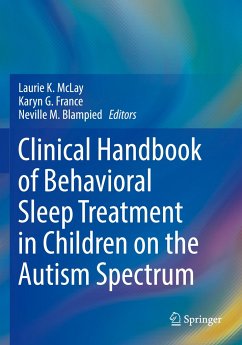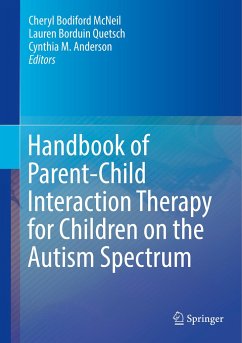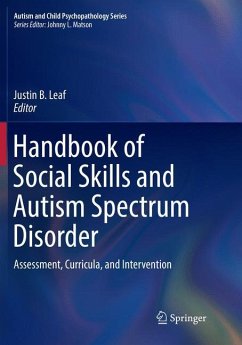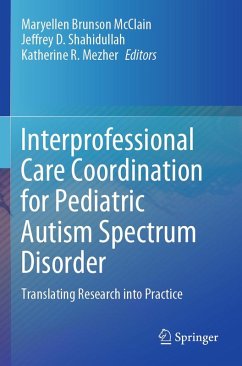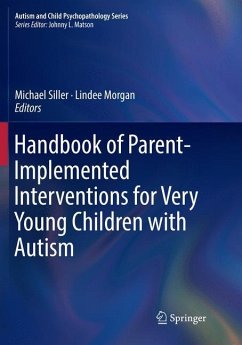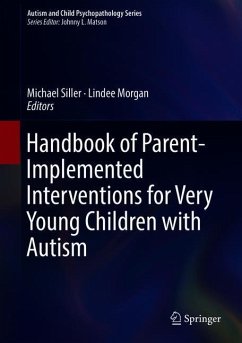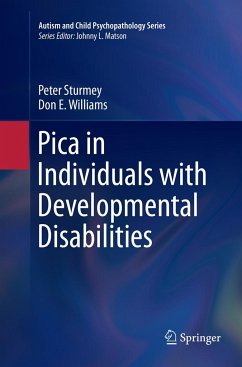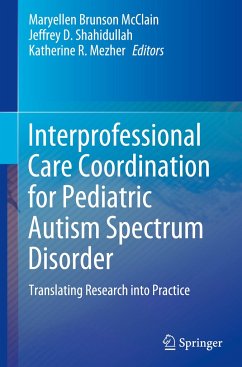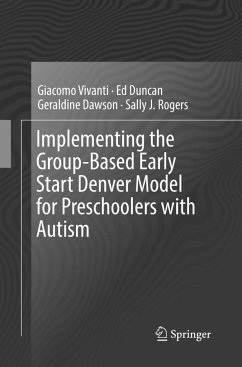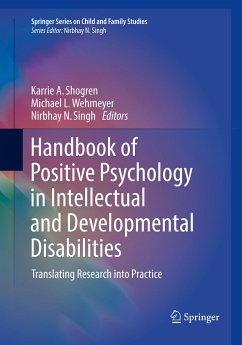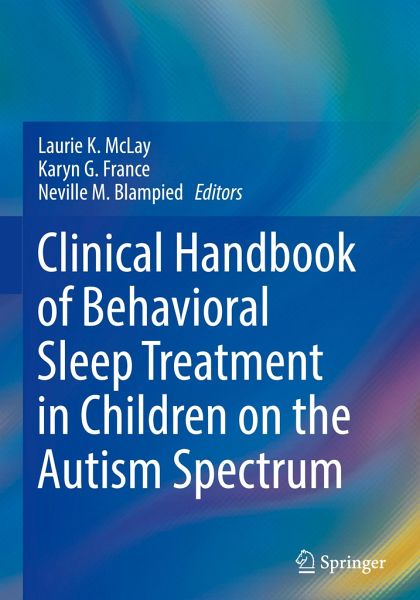
Clinical Handbook of Behavioral Sleep Treatment in Children on the Autism Spectrum

PAYBACK Punkte
0 °P sammeln!
This handbook provides an overview of the nature, prevalence, and causes of sleep problems in children with autism spectrum disorder (ASD) and examines the process of using functional behavior assessment (FBA) to treat sleep disorders. It describes several evidence-based treatments and explores how these align with the outcomes of the FBA process, including case illustrations of the assessment and treatment process. The handbook discusses the application of FBA in family contexts, including:The effects on children and families of successful interventions with sleep.How to conduct FBA with clin...
This handbook provides an overview of the nature, prevalence, and causes of sleep problems in children with autism spectrum disorder (ASD) and examines the process of using functional behavior assessment (FBA) to treat sleep disorders. It describes several evidence-based treatments and explores how these align with the outcomes of the FBA process, including case illustrations of the assessment and treatment process. The handbook discusses the application of FBA in family contexts, including:The effects on children and families of successful interventions with sleep.
How to conduct FBA with clinically complex families.
Including the child in the intervention.
The evidence of efficacy of other treatment approaches.
The handbook addresses sleep problems that are highly prevalent among children and young people with ASD, including sleep onset delay, frequent and prolonged night waking, and unwanted co-sleeping. It explores the profound secondary effects that sleep problems may have on children's daytime functioning as well as child and parent health and wellbeing. The handbook discusses the causes of sleep problems in individuals with ASD, which may be multifaceted and complex and include physiological, environmental, cognitive etiologies yet almost always have a behavioral or learned component. It examines how FBA can be used to characterize challenging behaviors and identify the antecedents (e.g., environmental context) and consequences that affect such behaviors. The volume details the process of using FBA to assess and treat sleep problems in children with ASD.
Clinical Handbook of Behavioural Sleep Treatment in Autism is a must-have resource for clinicians, therapists, and other practitioners as well as researchers and graduate students in clinical child and school psychology, behavioral therapy, social work, public health, developmental psychology, pediatrics, family studies, and child and adolescent psychiatry.
How to conduct FBA with clinically complex families.
Including the child in the intervention.
The evidence of efficacy of other treatment approaches.
The handbook addresses sleep problems that are highly prevalent among children and young people with ASD, including sleep onset delay, frequent and prolonged night waking, and unwanted co-sleeping. It explores the profound secondary effects that sleep problems may have on children's daytime functioning as well as child and parent health and wellbeing. The handbook discusses the causes of sleep problems in individuals with ASD, which may be multifaceted and complex and include physiological, environmental, cognitive etiologies yet almost always have a behavioral or learned component. It examines how FBA can be used to characterize challenging behaviors and identify the antecedents (e.g., environmental context) and consequences that affect such behaviors. The volume details the process of using FBA to assess and treat sleep problems in children with ASD.
Clinical Handbook of Behavioural Sleep Treatment in Autism is a must-have resource for clinicians, therapists, and other practitioners as well as researchers and graduate students in clinical child and school psychology, behavioral therapy, social work, public health, developmental psychology, pediatrics, family studies, and child and adolescent psychiatry.



